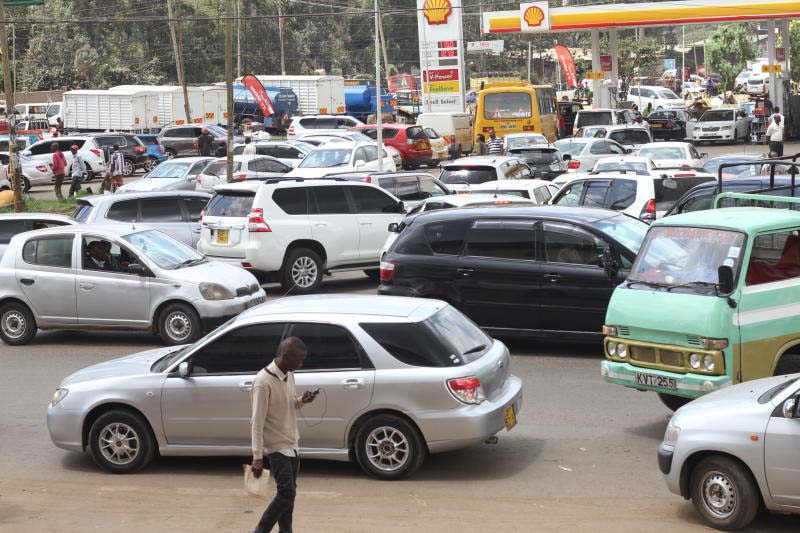×
The Standard e-Paper
Smart Minds Choose Us

A scramble for fuel in Karen, Nairobi, after the government slapped a 16 per cent VAT on petroleum products prompting a distributors' strike that in turn created a shortage. President Uhuru Kenyatta is expected to assent, reject, or send back to parliament, with suggestions, the new VAT law. [Elvis Ogina, Standard]
Kenyans have eagerly waited for the President in the hope that he will trigger the suspension of the tax that led to a country-wide fuel crisis.







